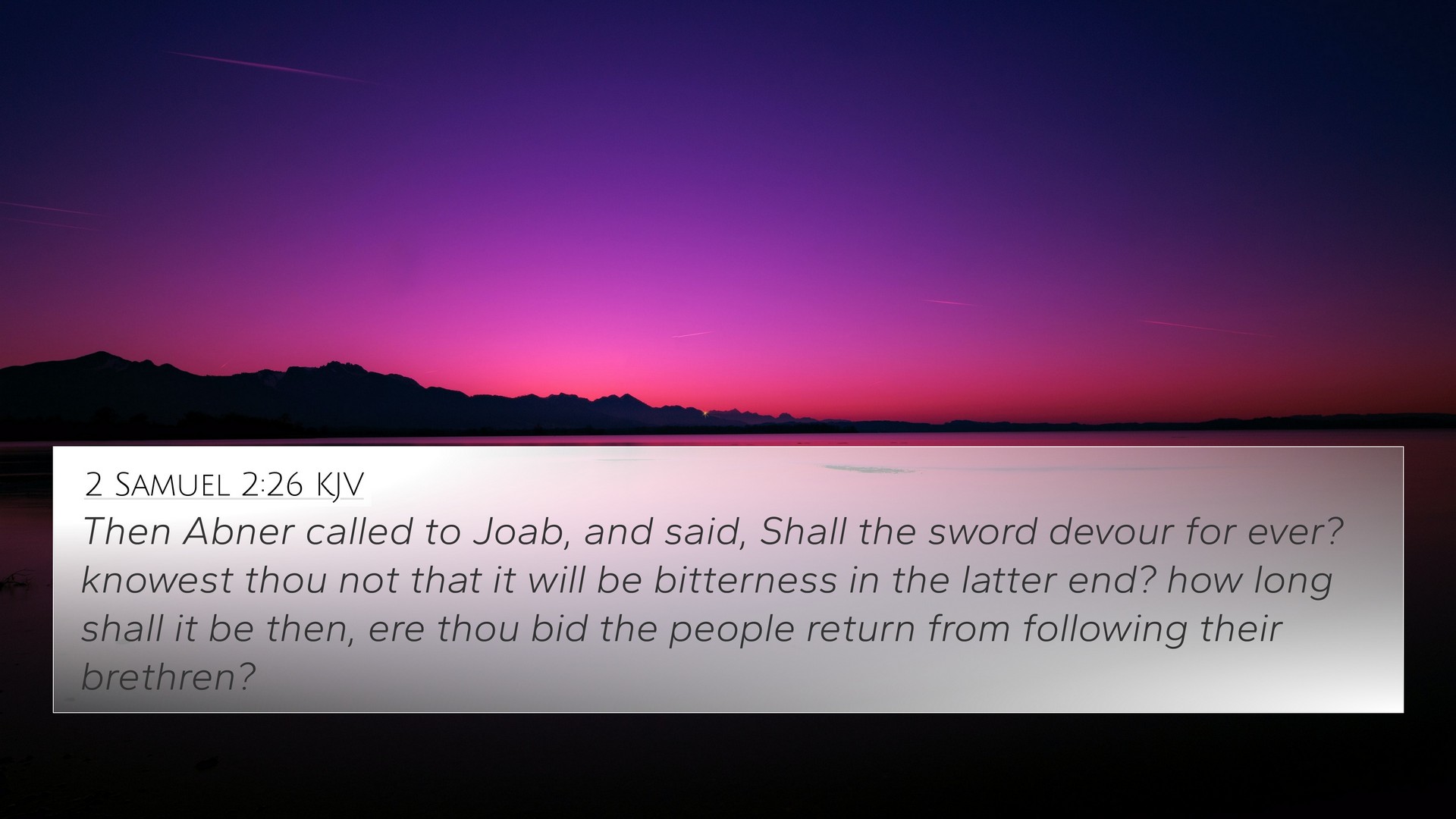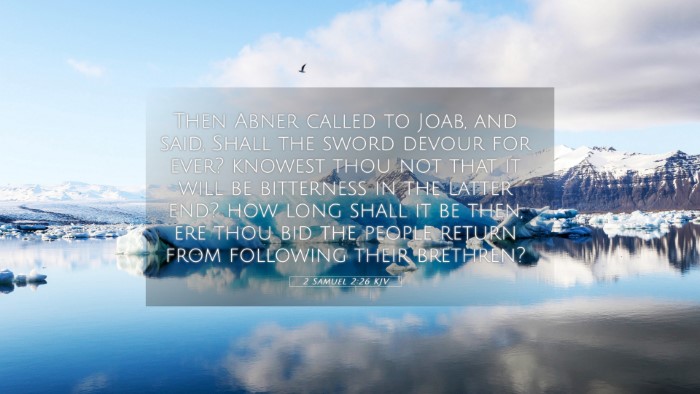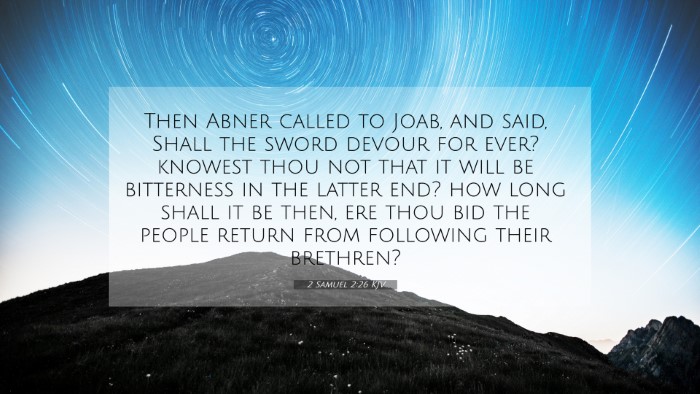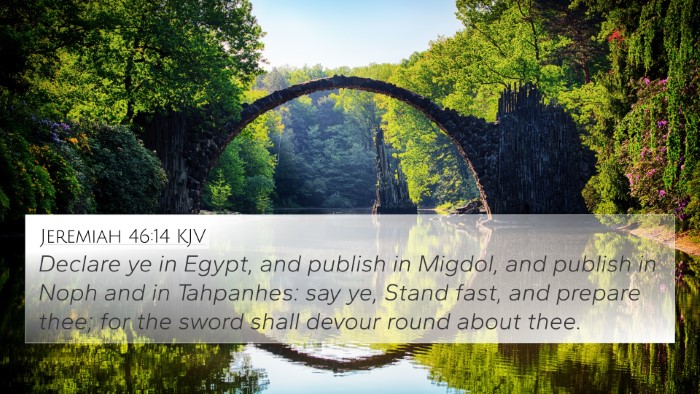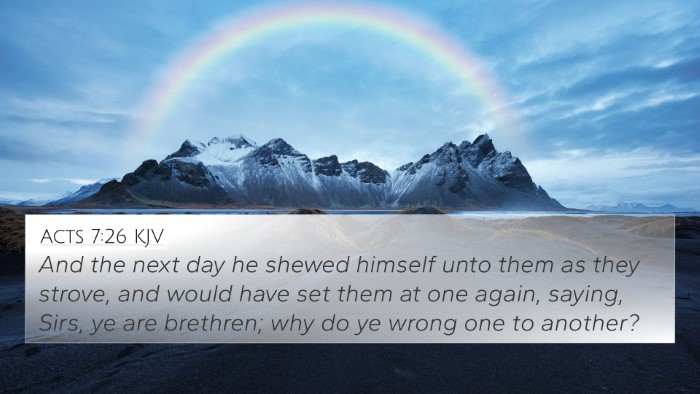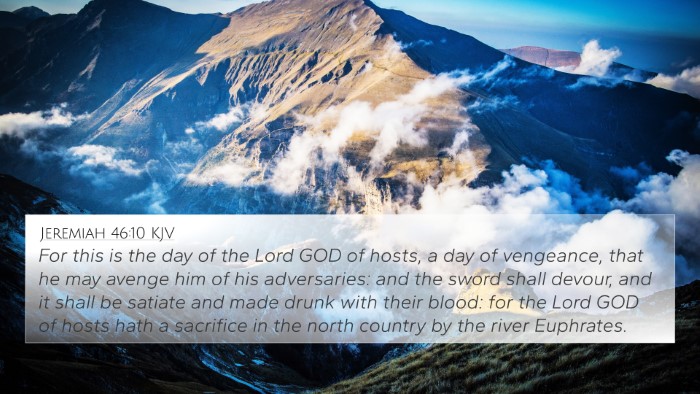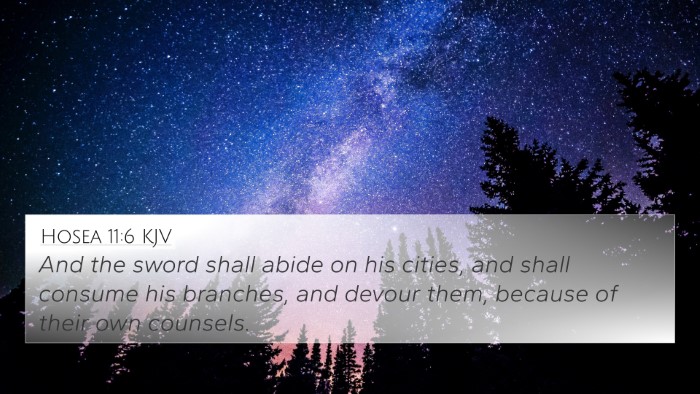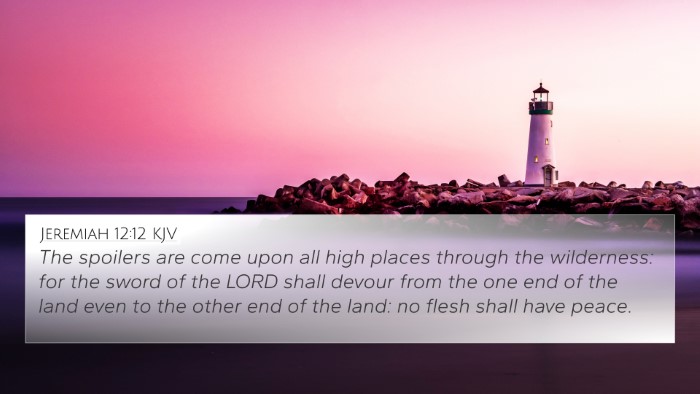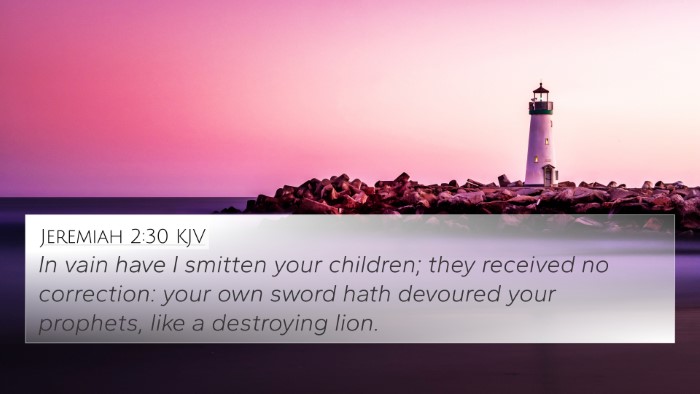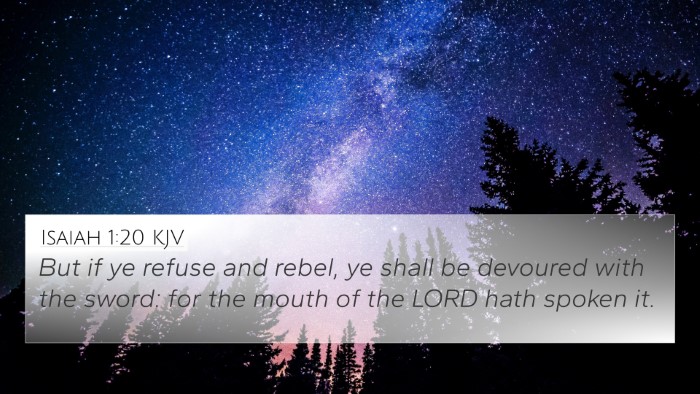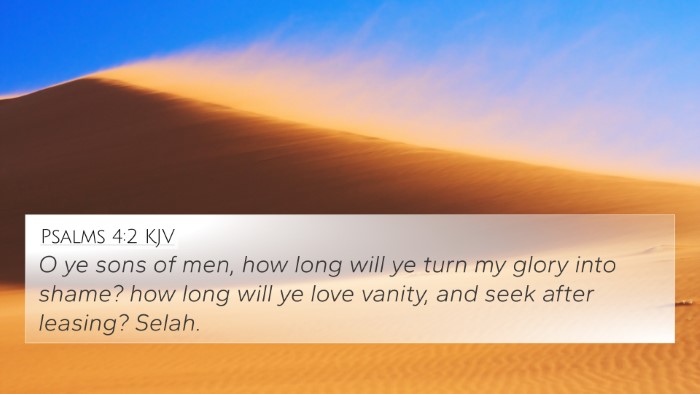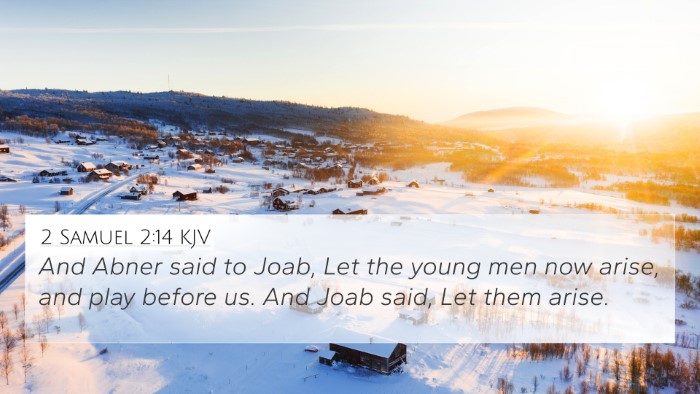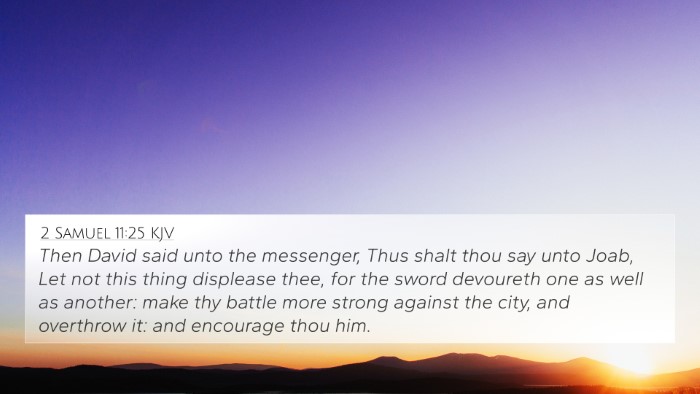Understanding 2 Samuel 2:26
In 2 Samuel 2:26, the verse states: "And Abner called to Joab, and said, Shall the sword devour forever? Knowest thou not that it will be bitterness in the latter end? How long shall it be then, ere thou bid the people return from following their brethren?" This verse highlights a significant moment of conflict resolution and the importance of peace over prolonged violence.
Contextual Overview
The backdrop of this verse is the power struggle following the death of Saul. Abner, the commander of Saul’s army, and Joab, the commander of David’s forces, are engaged in a conflict that threatens further bloodshed among their people.
- The Nature of Warfare: Abner appeals to Joab's sense of reason, questioning the futility of constant warfare.
- The Bitterness of Conflict: The term "bitterness" signifies the inevitability of sorrow that results from endless fighting, emphasizing the emotional toll of conflict.
- Call for Resolution: This verse is a pivotal moment, marking Abner's attempt to halt the senseless violence and seek reconciliation.
Commentary Insights
Matthew Henry's Commentary:
Henry emphasizes Abner's desire for peace and his wisdom in recognizing the destructive cycle of war. He notes that leaders have a responsibility to guide their people away from conflict and towards unity. Abner's plea represents a hope that violence can be curtailed for the greater good of their communities.
Albert Barnes' Commentary:
Barnes highlights that Abner’s words are not just a plea for cessation of fighting but also a profound question of leadership's moral obligations. The bitterness referred to is not just personal but communal, suggesting how prolonged conflict disrupts societal harmony.
Adam Clarke's Commentary:
Clarke provides a linguistic analysis, considering the implications of Abner's rhetorical questions. He posits that these inquiries are designed to provoke thought among the people and leaders about the destructive nature of their current trajectory.
Suggested Cross-References
- Proverbs 17:14 - "The beginning of strife is like releasing water; therefore stop contention before a quarrel starts."
- Ephesians 4:3 - "Endeavoring to keep the unity of the Spirit in the bond of peace."
- Romans 12:18 - "If it is possible, as much as depends on you, live peaceably with all men."
- Matthew 5:9 - "Blessed are the peacemakers, for they shall be called sons of God."
- James 3:18 - "Now the fruit of righteousness is sown in peace by those who make peace."
- Isaiah 2:4 - "And He shall judge between the nations, and rebuke many people; they shall beat their swords into plowshares, and their spears into pruning hooks; nation shall not lift up sword against nation, neither shall they learn war anymore."
- 2 Corinthians 5:18 - "Now all things are of God, who has reconciled us to Himself through Jesus Christ, and has given us the ministry of reconciliation."
Thematic Connections
This verse serves to connect various themes prevalent throughout the Bible, including reconciliation, the call for peace, and the challenges of leadership amidst conflict. The plea for peace rings true in both Old and New Testament contexts, making it a critical study point for those exploring the intersections of biblical themes.
Using Tools for Cross-Referencing
For deeper exploration of the connections between this passage and others, tools such as a Bible concordance or cross-reference Bible study guide can be instrumental. They help in identifying relationships in biblical texts and understanding how different verses speak to similar themes.
Applications for Modern Believers
For contemporary readers, this verse challenges us to reflect on our conflicts and consider the importance of reconciliation over strife. It encourages believers to be peacemakers in their communities and reminds us of the biblical foundations for promoting unity and understanding.
